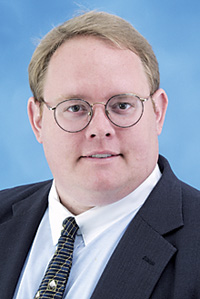Over the past few months, the industry has lobbied strenuously to halt a host of timely legislative proposals to reduce Medicare reimbursement for DME, oxygen and power wheelchairs.
During this time--and not all-together surprising given that the above cuts could take place in 2006--attention has been diverted from H.R. 3559 (the Hobson-Tanner bill), which is intended to modify competitive bidding and make it less onerous for HME providers.
As mandated by the Medicare Modernization Act (MMA), competitive bidding for DME is scheduled to begin in 10 metropolitan statistical areas (MSAs) in 2007.
As part of my job at Pride Mobility Products, I have spent the past few months traveling around the country, working with state associations and encouraging providers to ask their representatives to co-sign H.R. 3559.
To date, we have held over 60 meetings with representatives' offices including key congressional leaders (Rep. Nancy Johnson, R-Conn.; Rep. John Shadegg, R-Ariz.; and Rep. John Dingell, D-Mich.). The work we are doing is paying off: We are getting oral commitments from the representatives' offices every day.
As an industry, we need to urgently rise up and proactively educate our representatives about H.R. 3559. However, while discussing this issue with providers, I have detected some confusion about competitive bidding and how H.R. 3559 will help both large and small providers to overcome the drastic consequences. The following list represents the biggest misconceptions:
- If a provider does not bid, he can still deliver products and services to beneficiaries. Wrong. If a provider does not bid, he is excluded from the Medicare program.
- If a provider puts in a bid for a certain HCPC code and loses, he will still be able to deliver those products and services to Medicare beneficiaries at the lower allowable. Wrong. If a provider loses in competitive bidding, he is excluded from providing those products to Medicare beneficiaries for the term of the bid--likely, three years.
- If a provider wins a bid, then he can provide all HCPC coded products to Medicare beneficiaries. Wrong. Each code or code category will have a certain number of preferred providers (winning bidders) who will be allowed to provide those products. Example: Provider A wins the bid for oxygen services but loses the bid for hospital beds, manual wheelchairs and walkers. That provider can only deliver and bill for oxygen for that beneficiary. The other winning bidders will have to deliver the other equipment.
- A provider who services rural Medicare beneficiaries will not be affected by competitive bidding. Wrong. The competitive bidding language states that the HHS secretary MAY exempt individual rural areas from competitive bidding but isn't required to do so.
If competitive bidding begins in 2007 as its scheduled to, then we will see a number of companies who will have to make the hard decisions to radically change the way they do business or possibly be forced out of business.
I use the word "if" because we can still do something to eliminate the negative consequences of competitive bidding. H.R. 3559 will modify aspects of competitive bidding to protect beneficiaries and providers and still allow CMS to maintain the cost savings mandated in the MMA. But for that to happen, providers must convince their representatives to co-sign the legislation. Without sufficient support, the bill will die.
H.R. 3559 does the following:
- Protects small providers. Any small provider who submits a qualified bid and loses will still be allowed to provide Medicare beneficiaries with all types of medical equipment (any willing provider provision). The providers will have to abide by the new allowable set by the winning bidders.
- Protects large providers. CMS must prove that a specific HCPC code or product category will save 10% or more or that code (product) will not be allowed to be competitively bid. (Oxygen and rehab equipment will be protected.)
- Protects rural providers. H.R. 3559 mandates that all rural beneficiaries will be exempt from competitive bidding. H.R. 3559 also requires a comparability analysis to be done before the HHS secretary can apply any winning bid to another area.
- Eliminates the lowest bid from being applied to rural areas. This bill allows all of us to remain in the industry and run our businesses the way we decide to.
The time to act is now.
Pride Mobility sales representatives and I will be setting up meetings with congressional representatives in their districts to educate them about this bill and ask them to co-sign H.R. 3559. I am asking for all providers and other manufacturers to participate in these meetings. This bill affects the entire industry, and we must come together to fight for the passage of H.R. 3559. Please contact me at wgrau@pridemobility.com if there are any questions or you would like to participate in the local district meetings with your representatives.
---
Wayne Grau is senior area manager for New England at Pride Mobility. He's currently on special assignment, touring the country to work with state associations and HME providers to gain co-sponsors for H.R. 3559.




Comments